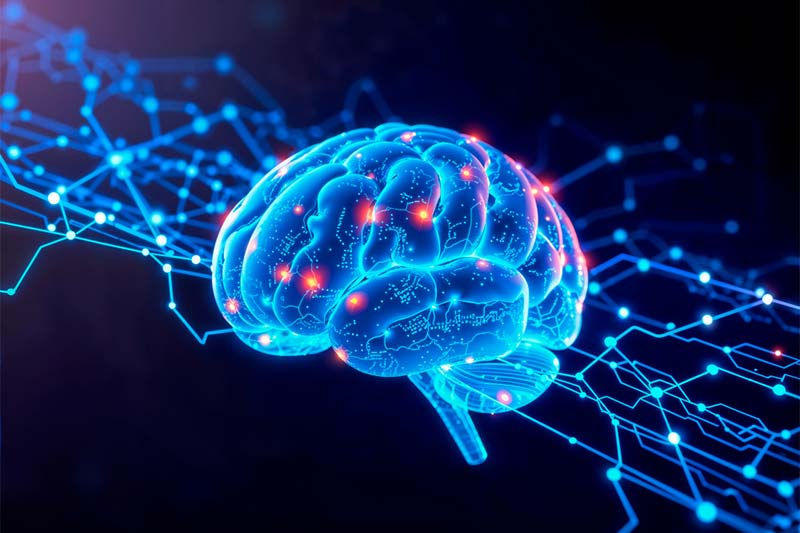Mental health treatment has long relied on psychotherapy and medication management as foundational approaches to improving emotional well-being. While these treatments are well-established, ongoing research has led to new insights and expanded options, from innovative medications to personalized treatment plans targeting brain chemistry more precisely.
As our understanding of mental health deepens, individuals can access a broader range of treatment options that can more effectively reshape neural pathways. Exploring how psychotherapy and medication management complement each other—alongside emerging therapies—can help individuals make informed decisions about their mental health journey and foster lasting resilience.
Understanding Neural Pathways and Neuroplasticity
The brain is a highly adaptable organ. Through neuroplasticity, neural pathways—the connections between neurons—can strengthen, weaken, or be entirely rewired based on experiences, thoughts, and chemical changes.
This adaptability enables neurons to adjust their activities in response to new experiences, learning, and environmental changes. For instance, chronic stress and depression have been associated with structural changes in the hippocampus and prefrontal cortex, such as dendritic atrophy and synaptic loss.
Conversely, psychotherapy and medication management can promote neuroplasticity, facilitating the brain’s capacity to form new, healthier neural connections. Psychotherapy provides tools for cognitive and behavioral change, while medications help regulate neurotransmitters, creating a more stable foundation for healing. (PMC)
The Role of Medication Management in Mental Health
Medication management is a structured, evidence-based approach that ensures individuals receive the proper psychiatric medications in the correct dosages to support their mental health. Medications can be crucial in stabilizing mood, reducing symptoms, and enhancing cognitive function.
How Psychiatric Medications Support Neuroplasticity
Many psychiatric medications, particularly antidepressants, mood stabilizers, and antipsychotics, work by altering neurotransmitter activity in the brain. This process can create an environment conducive to neuroplasticity by:
- Regulating neurotransmitters like serotonin, dopamine, and norepinephrine to enhance emotional stability.
- Reducing excessive neural activity linked to anxiety, impulsivity, or intrusive thoughts.
- Enhancing cognitive flexibility, making it easier for individuals to adopt new thought patterns and behaviors introduced in therapy.
For example, selective serotonin reuptake inhibitors (SSRIs)—commonly prescribed for depression and anxiety—help increase serotonin levels, which is associated with greater emotional resilience and cognitive flexibility. Similarly, mood stabilizers like lithium support neural regeneration and protect against cell damage.
However, medication alone does not retrain the brain—this is where psychotherapy becomes essential.
The Role of Psychotherapy in Rewiring Neural Pathways
Psychotherapy, or talk therapy, provides the tools and strategies to reshape maladaptive thought patterns and reinforce positive behaviors. Different therapeutic approaches influence neuroplasticity in unique ways. For example:
- Cognitive Behavioral Therapy (CBT) helps individuals recognize and change negative thinking patterns, weakening neural pathways associated with anxiety and depression.
- Mindfulness-Based Therapy fosters awareness and emotional regulation, strengthening neural circuits involved in self-control and resilience.
- Eye Movement Desensitization and Reprocessing (EMDR) has been shown to help the brain reprocess traumatic memories, leading to long-term changes in emotional responses.
- Psychodynamic Therapy explores deep-rooted emotional experiences, allowing for shifts in unconscious neural associations.
By engaging in therapy, individuals actively reshape their brains’ responses to stress, fear, and negative self-perceptions, primarily when medication supports the brain in achieving greater balance.
How Psychotherapy and Medication Work Together
The combination of medication management and psychotherapy creates a synergistic effect that allows for more profound and lasting changes in neural pathways. Research supports this integrated approach:
- A study published in JAMA Psychiatry found that individuals with major depressive disorder who received both therapy and medication had higher recovery rates compared to those who received only one treatment.
- According to the National Institute of Mental Health (NIMH), combining medication with therapy significantly improves emotional regulation, memory, and resilience compared to either treatment alone.
This integrated approach not only enhances symptom relief but also improves treatment outcomes for individuals facing mental health issues by addressing both the biological and psychological aspects of mental health. Psychotherapy and medication management work together to promote lasting recovery, greater emotional stability, and an overall improved quality of life.
The Science Behind This Synergy
Medication acts as a stabilizer, reducing the severity of symptoms so individuals can better engage with therapy. Without medication, those with severe anxiety, depression, or other mental health conditions may struggle to absorb and implement therapeutic strategies.
On the other hand, psychotherapy helps sustain long-term changes even after medication is tapered off. For many individuals, therapy reinforces healthier neural pathways, so medication may no longer be needed or can be used at a lower dose.
Real-World Benefits of an Integrated Approach
An integrated approach combining psychotherapy and medication management offers more efficient symptom relief. Medication alleviates acute distress, allowing individuals to engage more effectively in therapy. Psychotherapy, in turn, builds self-awareness and coping skills, reinforcing healthier neural pathways and reducing the risk of relapse by fostering long-term resilience.
When these two treatments are personalized and carefully managed, individuals experience deeper healing and a higher quality of life.
Seeking Professional Guidance
Finding the right balance of medication and therapy requires expert guidance from mental health professionals who understand the nuances of treatment. A licensed professional should always supervise medication management to ensure the proper dosage, minimize side effects, and adjust prescriptions as needed.
At Optimal Vitality Concierge, we specialize in personalized medication management. This approach is designed to work alongside therapy, helping individuals create lasting changes in their mental health.
If you or a loved one is considering medication management as part of a holistic mental health treatment plan, we invite you to explore our services.
Learn more about Optimal Vitality Concierge’s Medication Management services today.



